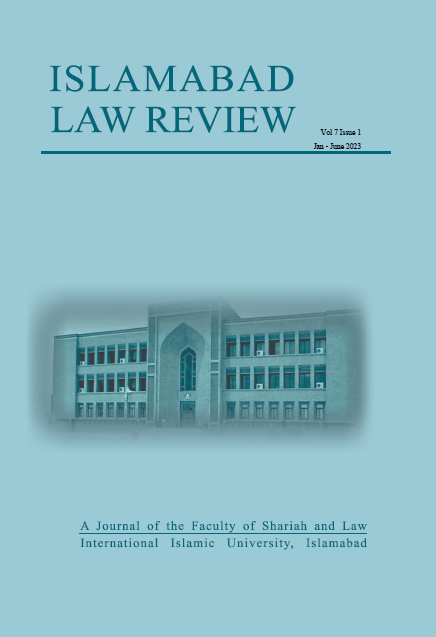Jurisprudence of Courts in Pakistan upon Validation of Marriages by Sui Juris Woman without the Consent of Walī
Abstract
No statutory law is there in Pakistan regarding marriage by a sui juris woman without the consent of her walī. The validity of such marriages, roots in the precedent laws. The absence of explicit statute laws has granted absolute authority to the judicial segment to ‘create and interpret’ rulings for the issue. The case laws maintain that such marriages are being validated on the jurisprudence of the Ḥanafī fiqh, the prevalent school of legal thought in Pakistan. However, the scrutiny of the classical Ḥanafī fiqh depicts that the courts of law have not taken its jurisprudence in holistic manner. The courts while adjudicating such cases neither pay any heed to the compliance of the pre-requisites of kafā’ah and mahr al-mithl, nor is the walī’s right of annulment recognized. This research paper strives to canvass and sketch out the jurisprudence that the courts have developed while dealing with the validity status of the marriages held by adult Muslim women without their walī’s consent. Thus, the case laws, which are the fundamental essence of this jurisprudence are being scrutinized. The current research concludes that the fiqhī opinions must be implemented completely and not partially, in better accordance with the true Ḥanafī law.


